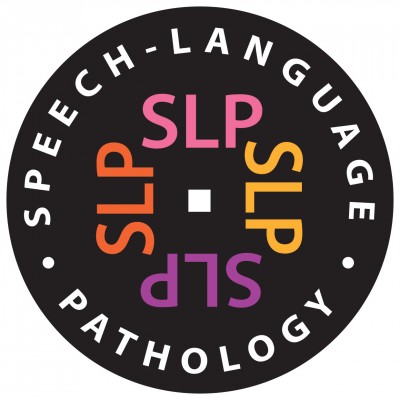Top 16 School Psychologist Interview Questions
1) Explain the role of the school psychologist and their responsibilities?
- Analyzing psychological and educational needs of referred students and consult with appropriate professional persons regarding implication and results
- Preparing and implementing programs that help students to achieve their goals and get desired results
- Making suitable referrals regarding vocational program needs of students
- Maintain written and comprehensive reports about the referred students and its progress
- Associate and communicate with appropriate persons or staff concerning with the educational requirement and discuss the scope of improvement
- Maintaining the confidentiality of student and school personnel information
- Assisting people in the interpretation of criteria for determination of eligibility
2) What are all places where school psychologist can work apart from school?
More than 80% of the school psychologist works at school, but apart from that they also work at community agencies, hospitals, clinics and universities. They usually work as practitioners, administrators and faculty researchers.
3) Explain what is NASP program?
NASP program stands for the National Association of School Psychologists (NASP). It reviews school psychology specialists & doctoral program and approves those programs that provide evidence of consistency with NASP standards.
4) Explain what is the difference between “Child Psychologist” and “School Psychologist”?
The difference between them is
- Child Psychologist: It is moreover based on a behavioral psychology. They treat children having behavioral disorder. You will see child psychologist giving their services to mental health center, hospital, private clinic setting, etc.
- School Psychologist: It includes those who influences the study of a child like teachers, parents, families and school organization. Their efforts are always towards improving child academic records by understanding their problem and obstacles.
5) Can a school psychologist work privately without a doctorate?
The laws of each state govern who can practice psychology and who can use the title of “psychologist” in the private sector. For independent practice, APA and majority of states do not recognize non-doctoral degrees. However, few states offer licensure to master level psychologist to practice privately.

6) What are the common challenges that hampers quality education in special education sector?
There are a number of challenges that hampers quality education is
- Lack of educational resources especially for a special child
- Teachers are less competitive due to the lack of training
- Course work that is not comprehensive for students as well as for teachers
7) Explain what is Auditory Processing Disorder? What are the Symptoms?
Auditory processing is a natural process of listening, where sound travels from the ear to the brain and then interpret it. And any obstacle to the path of this sound or breakdown may results in delay of understanding this message by brain. Such condition is referred as Auditory Processing Disorder. It is one of the common factor found in students who are unable to concentrate in studies.
Symptoms of APD disorder includes
- Difficulty in understanding speech in a noisy environment
- Inability in following directions or differentiating similar sounding speech sounds
- Often ask for clarification or repetition
- Difficulty in reading and understanding information
8) Mention what is the treatment of APD?
The APD treatment includes
- Changing the learning or communication environment
- Recruiting higher order skills to help compensate for the disorder
- Remediation of the auditory deficit itself
9) Explain what school counselor requires to become a school psychologist?
To become a school psychologist, a school counselor needs to attend a school psychology program and a minimum 1200 hour internship. Based on your previous coursework, the school psychology may permit you to waive off other related classes and field experiences.
10) List out the basic skills used by school psychologists?
Basic skills used by school psychologists are
- Data based decision making and accountability
- Consultation and collaboration
- Learning and instruction
- Socialization and development of life skills
- Student diversity in development and learning
- Prevention, crisis intervention and mental health
- Home/school/community collaboration
- Research and program evaluation
- School psychology practice and development
- Technology standards
- School and systems organization, policy development and climate
11) Explain how school psychologist can support teachers?
- By lending support to teachers in helping students and collaborate with them for a better outcome
- Help teachers to collect the data to monitor student progress
- Work on the data that teacher has collected related to student performance and progress
- Make suggestions to teachers
- Offer them to work along with them in a class for an hour one day
- Teachers can take help from the school psychologist to control the students without dictating them
12) Explain how school psychologist can help a student to overcome his learning disabilities due to social insecurities?
- Provide psychological counseling to help solve interpersonal or family problems that interfere with school performance
- Work directly with children and their families to help resolve problems in learning
- Provide training in social skills and anger management
- Help schools to manage crisis like suicides, illness or community trauma
13) What steps does a school psychologist takes to prevent students from falling to depressions?
- Design programs for those children who are at risk of failing in school
- Develop a program to make schools safer and more effective
- Collaborate with parents and teachers to promote healthy school environment
- Develop partnership with community agencies and school staff, to provide services, focused at improving physical and psychological health
14) Explain what is RTI?
RTI stands for Responsiveness to Intervention, is a process of providing services and interventions to struggling learners at increasing levels of intensity.
15) What all things can be included in RTI?
- High-quality instructions and behavioral supports
- Scientific research based intervention is delivered by qualified personnel with expertise in intervention
- Student progress is monitored continuously
- For each student, data based documentation is maintained
- Decisions are made by a team of school staff
- Parent’s notification and involvement are documented
16) Explain what can be done to optimize the use of school psychologist services?
- Provide clerical support to minimize certain paperwork and activities that do not require professional skill or oversight
- Maximize the use of technology that saves your time and human resource like laptop, test-scoring software, computer, etc.
- Allow psychologist to take help from experts in their relative area and make full use of it
- Organize and allot assignment strategically to staff so as to support and protect high yield project





